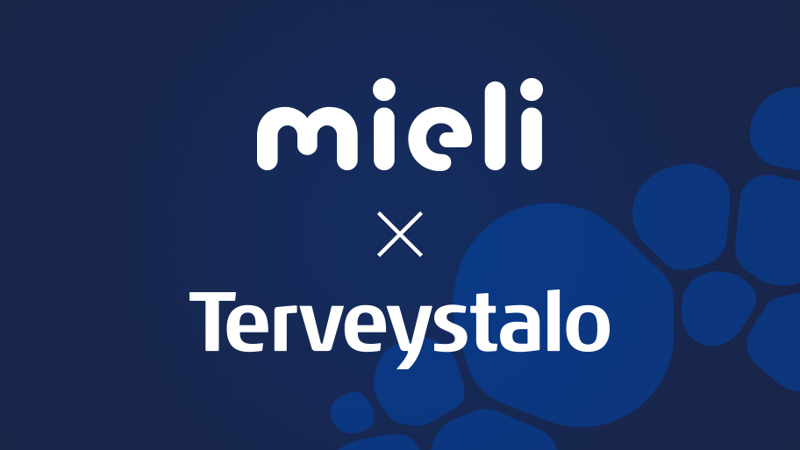Where did our attention go and how can we get it back?
We live in an era of overachievement and stimuli, which affects our ability to maintain attention, says Joakim Harju, a psychiatric nurse and paramedic at Terveystalo.

Attention means the ability to focus on a single task and filter out distractions from the environment.
− Attention is crucial for learning, working, relationships, and managing everyday life. Problems with attention manifest as forgetfulness, tardiness, and inability to concentrate on tasks or, for example, conversations, describes Joakim Harju, a psychiatric nurse at Terveystalo.
Technology has shortened attention spans and reshaped our brain's reward system The use of phones, televisions, and computers has become a significant part of our lives.
− We don't even really notice how much time we spend looking at different screens in a day. Excessive screen time, especially before going to bed, disrupts sleep patterns and affects the ability to focus, Harju explains.
The fast pace of modern life, with its social media clips, updates, and messages, has also shortened attention spans and increased susceptibility to distractions.
− We have become quite accustomed to receiving information and entertainment in very quick, small doses. This provides our brains with immediate gratification, which rewires our brain's reward system. Over time, our ability to maintain attention on tasks that are not immediately rewarding diminishes.
The endless stream of content makes focusing challenging: "Never in human history has there been a similar situation"
− Today, we have access to an unprecedented amount of information and distractions through the internet and social media. However, constant exposure to notifications and an endless stream of content makes focusing challenging.
Harju notes that there has never been a similar situation in human history.
− The amount of new content on various channels is so vast that our ability to adapt to the situation is being tested. Information overload strains our cognitive capacity and can cause anxiety, frustration, and an inability to filter out the necessary information from the content flood, Harju describes.
A culture focused on performance does not support our way of maintaining attention
According to Harju, a culture that values constant productivity and performance does not leave enough time for recovery, which is essential for mental health and concentration.
− People also try to perform multiple tasks simultaneously, thinking they are more efficient. In reality, multitasking weakens concentration and job performance. Multiple simultaneous goals and tasks do not support our natural way of maintaining attention and completing tasks.
How can we get our attention back?
Harju lists many proven effective ways to improve attention.
- Do one thing at a time.
- Minimize distractions, such as phone notifications.
- Ensure adequate dopamine, the pleasure hormone. Exercise, sufficient sleep, a healthy diet, and exposure to sunlight boost dopamine levels, which are needed to maintain motivation and, consequently, attention.
- Try mindfulness and body awareness exercises. Meditation and relaxation exercises can enhance brain function and concentration.
- Divide tasks into limited and small parts. This makes the task easier to approach, manage, and complete. It also maintains motivation.
- Set a deadline or reward for tedious tasks requiring concentration or perseverance. For example, give yourself an hour to complete a specific task: this makes task completion a kind of race against time. You can also reward yourself after completing the task.
- Do important things first thing in the morning. Many may notice that resistance to doing demanding tasks is lower right after waking up, making it easier to concentrate and get things done before the day's information flood and demands take their toll.
Attention problems due to our living environment have increased alongside ADHD
According to Harju, many people today have a distorted view of what attention should be.
− It is quite normal not to be able to concentrate on one thing for hours, to find it difficult to start an unpleasant task, or for thoughts to wander at times.
Today, there is much talk in the media and social media about the increase in ADHD, which has made many people worried about attention challenges. ADHD, or attention deficit hyperactivity disorder, is a congenital neurological disorder, and its diagnosis is crucially based on the presence of symptoms throughout life from childhood onwards.
Lue lisää aiheesta

Our bodies are telling us we're overloaded - here's how to spot your own warning signs
Stressed about returning to work and the hustle and bustle of everyday life? Our bodies often give us clear warning signs of overload. Listening to yourself is an important preventative measure.

Healthy Working Life Barometer 2025: How to ensure that Finnish working life remains competitive and healthy in the future?
Terveystalo's annual Healthy Working Life Barometer surveyed the state of Finnish working life and the ability of organisations to respond to the changing world of work.

Increasing use of AI in healthcare - Terveystalo has published its ethical principles for AI
AI offers significant potential for solving healthcare problems, but its use requires accountability and clear principles from healthcare organisations.

Terveystalo and MIELI Mental Health Finland are jointly promoting mental well-being
Terveystalo and MIELI Mental Health Finland have agreed on a long-term partnership aimed at strengthening the mental health and well-being of Finns and finding solutions to the mental health crisis.

Collaboration is the only way to solve wicked problems
Disability due to mental health challenges is a complex and nebulous problem that cannot be solved by individual tricks. It requires a long-term and systematic approach at both individual and community level. According to Simo Taimela, senior epidemiologist at Terveystalo, tackling the mental health epidemic requires both preventive measures for work communities and targeted and effective treatment for those who will benefit most.

Mental health-related sickness absences finally started to decrease - Terveystalo commits to an ambitious target for 2025
In Finland, it is estimated that up to 7 million working days are lost each year due to mental health-related sick leave. Not only can mental health challenges, if chronic, lead to unnecessary premature exclusion from working life, but the situation is also unsustainable for Finland's vitality and national economy. Recent data from Terveystalo show that timely and appropriate interventions have reduced the duration of mental health-related absenteeism and brought it down for the first time in a decade. This significant turnaround gives hope that the mental health crisis can be prevented, but it will require a concerted effort by all concerned.